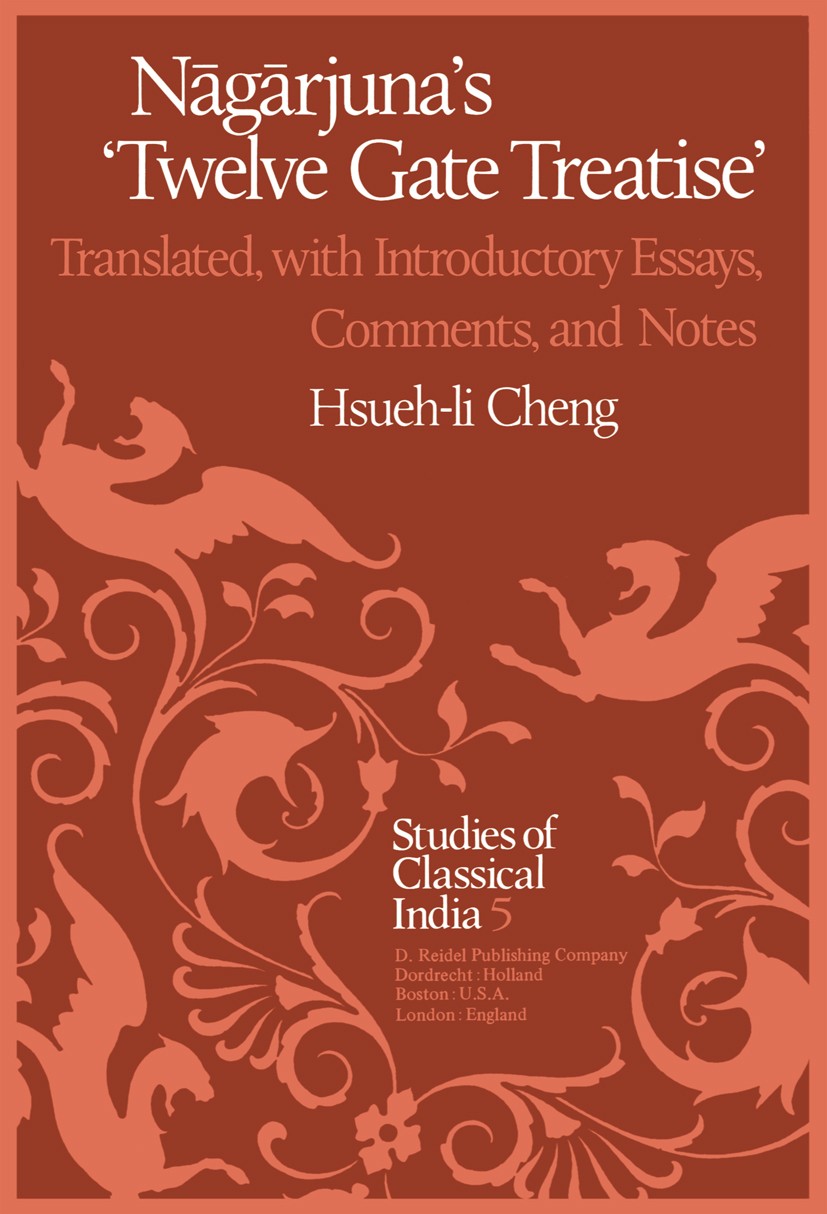| 书目名称 | Nāgārjuna’s Twelve Gate Treatise | | 副标题 | Translated with Intr | | 编辑 | Hsueh-li Cheng | | 视频video | http://file.papertrans.cn/670/669816/669816.mp4 | | 丛书名称 | Studies of Classical India | | 图书封面 |  | | 描述 | MADHYAMIKA The hallmark of Miidhyamika philosophy is ‘Emptiness‘, sunyata. This is not a view of reality. In fact it is emphatically denied that sunyata is a view of reality. If anybody falls into such an error as to construe emptiness as reality (or as a view, even the right view, of reality), he is only grasping the snake at the wrong end (Mk, 24.1 I)! Nftgfujuna in Mk, 24.18, has referred to at least four ways by which the same truth is conveyed: Whatever is dependent origination, we call it emptiness. That is (also) dependent conceptualization; that is, to be sure, the Middle Way. The two terms, pratitya samutpiida and upiidiiya prajnapti, which I have translated here- as ‘dependent origination‘ and ‘dependent conceptualization‘ need to be explained. The interdependence of everything (and under ‘everything‘ we may include, following the Mftdhyamika, all items, ontological concepts, entities, theories, views, theses and even relative truths), i.e., the essential lack of independence of the origin (cf. utpiida) of everything proves or shows that everything is essentially devoid of its assumed essence or its independent ‘own nature‘ or its ‘self-existence‘ (cf. svabhiiva). Besides | | 出版日期 | Book 1982 | | 关键词 | Chinese; bibliography; identity; nature; subject | | 版次 | 1 | | doi | https://doi.org/10.1007/978-94-009-7775-4 | | isbn_softcover | 978-94-009-7777-8 | | isbn_ebook | 978-94-009-7775-4 | | copyright | D. Reidel Publishing Company, Dordrecht, Holland 1982 |
The information of publication is updating

|
|
 |Archiver|手机版|小黑屋|
派博传思国际
( 京公网安备110108008328)
GMT+8, 2025-12-30 03:48
|Archiver|手机版|小黑屋|
派博传思国际
( 京公网安备110108008328)
GMT+8, 2025-12-30 03:48


